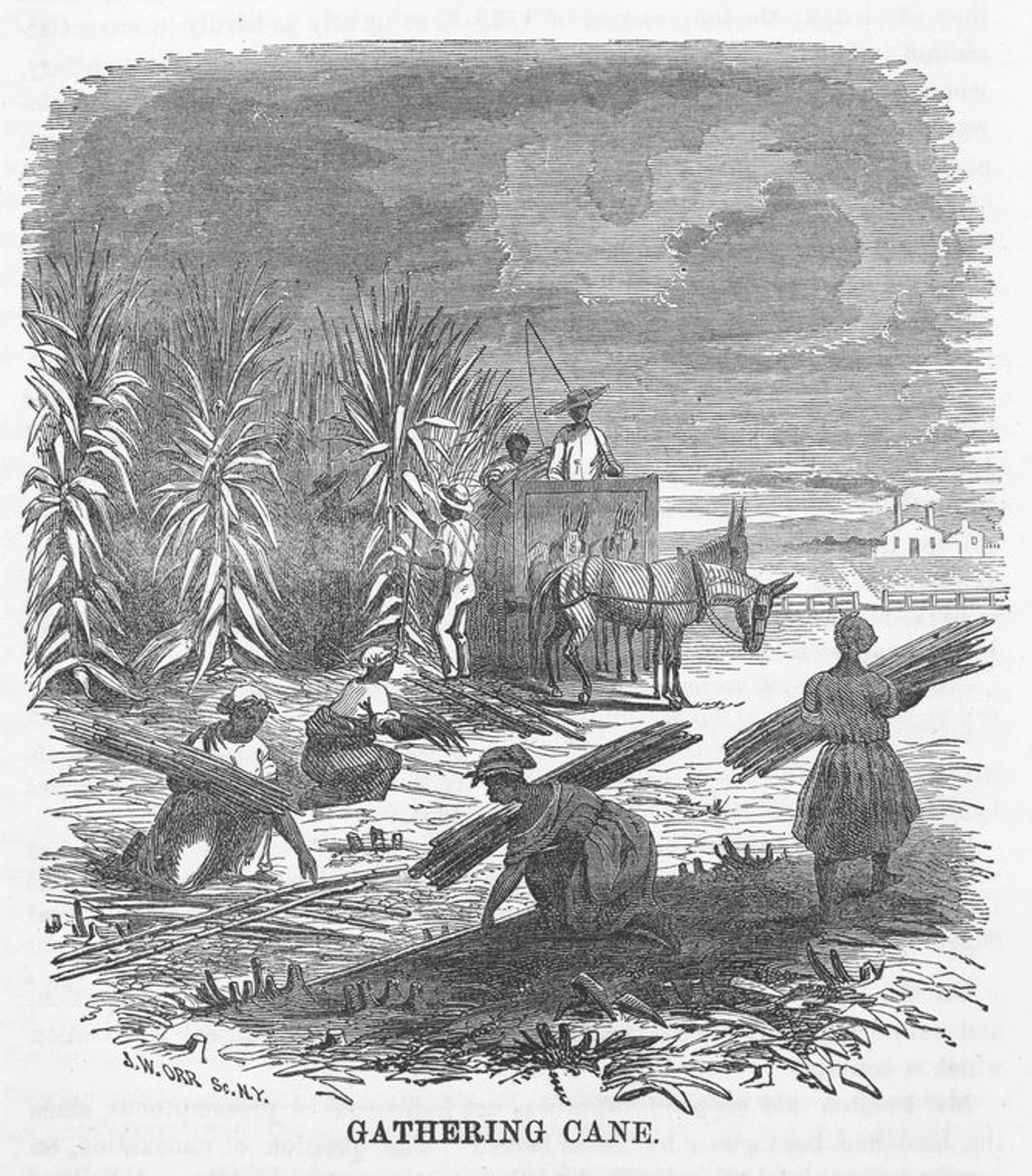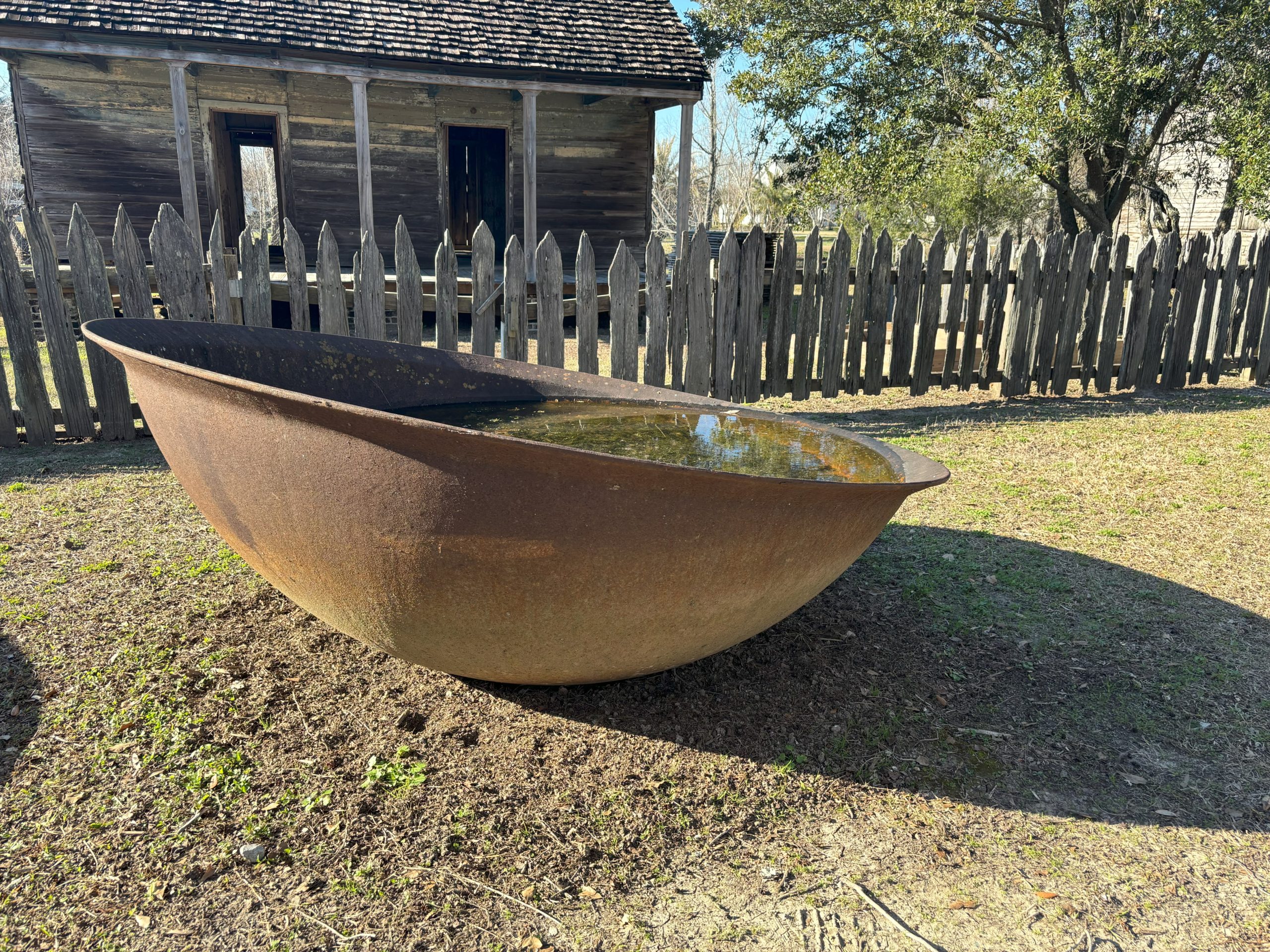Gastropod looks at food through the lens of science and history.
Co-hosts Cynthia Graber and Nicola Twilley serve up a brand new episode every two weeks.
Co-hosts Cynthia Graber and Nicola Twilley serve up a brand new episode every two weeks.
Gastropod listeners! Enter your name and email address here by June 4 for an exclusive chance to win an early, free copy of Nicky's new book, Frostbite: How Refrigeration Changed Our Food, Our Planet, and Ourselves, and a limited-edition fridge magnet!

An engraving of slaves gathering sugarcane, illustrated by artist John William Orr in 1859. (Image courtesy of the New York Public Library's Schomburg Center for Research in Black Culture)
Neil Buttery is the author of A Dark History of Sugar. He also writes about British food and history on his blog, fittingly titled British Food History.
Historian Elizabeth Abbott is the author of Sugar: A Bittersweet History.
 At Whitney Plantation, one of the giant kettles enslaved workers used to process sugar cane juice into crystallized sugar. The juice was heated over an open fire in kettles of decreasing size, where it clarified and evaporated. After the evaporated juice turned into syrup, the sugar-makers would watch for sugar crystals to form and then move it into wooden tanks to cool. (Photo by Cynthia Graber)
At Whitney Plantation, one of the giant kettles enslaved workers used to process sugar cane juice into crystallized sugar. The juice was heated over an open fire in kettles of decreasing size, where it clarified and evaporated. After the evaporated juice turned into syrup, the sugar-makers would watch for sugar crystals to form and then move it into wooden tanks to cool. (Photo by Cynthia Graber)
Ashley Rogers is the executive director of Whitney Plantation, a former sugar, indigo, and rice plantation in Edgard, Louisiana, which is now preserved as a museum dedicated to the history of slavery.
June and Angie Provost are the owners and operators of Provost Farm, a family farm focused on growing sugarcane and empowering Black and Indigenous growers. You can hear more of the Provosts' story on episode 5 of The New York Times' 1619 Project podcast.
Click here for a transcript of the show. Please note that the transcript is provided as a courtesy and may contain errors.